Introduction
Staying on-topic is a fundamental aspect of successful academic or professional writing. Whether it's an essay, research paper, report, or any other type of assignment, maintaining focus on the assigned topic is crucial for producing high-quality work. It ensures that your writing remains relevant, coherent, and purposeful. In this comprehensive guide, we will explore strategies and techniques to efficiently stick to the topic of the assignment, enabling you to meet your academic or professional objectives.

Understand the Assignment Prompt
Efficiency begins with a clear understanding of the assignment prompt or instructions. When you receive an assignment, take the following steps:
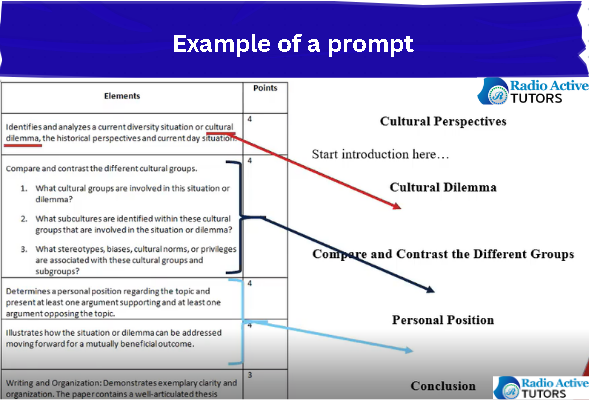
Careful Reading: Read the prompt thoroughly, making note of key requirements, such as the topic, scope, length, and format. Highlight or underline essential details.
Ask Questions: If the assignment prompt is unclear, don't hesitate to seek clarification from your instructor or supervisor. A well-defined understanding of the task is the foundation of staying on-topic.
Research the Topic
Before diving into the writing process, it's crucial to familiarize yourself with the assigned topic. Effective research helps you grasp the subject matter, key concepts, and relevant sources. Here's how to conduct thorough research:

Library Resources: Explore academic databases, books, journals, and credible websites to gather comprehensive information on the topic.
Note-taking: While researching, take organized notes, summarizing key points, ideas, and source information. This will help you stay focused during the writing process.
Evaluate Sources: Assess the credibility of your sources to ensure that the information you gather is trustworthy and relevant to the topic.
Create an Outline
Organizing your thoughts and ideas is essential for maintaining focus. An outline serves as a roadmap for your assignment and includes the following components:
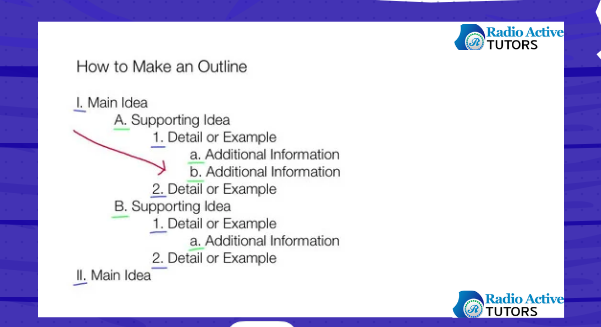
Introduction: Start with a clear introduction that presents your thesis statement or the main point you intend to convey.
Main Sections: Outline the primary sections or points you plan to cover in the body of your work. Each section should relate directly to the topic.
Subsections: For complex topics, break down main sections into subsections for a more organized structure.
Develop a Clear Thesis Statement
For assignments that require a thesis statement, your thesis should be clear, concise, and specific to the topic. It serves as the central argument that your entire assignment revolves around. Be sure to revisit your thesis as you write to ensure your work aligns with your main point.
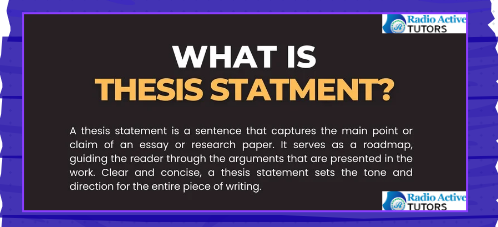
Set Clear Objectives
Define the specific goals or objectives you aim to achieve with your assignment. Ask yourself what you want to inform or persuade your readers about regarding the topic. Setting clear objectives helps you maintain focus and relevance throughout your work.
Avoid Off-Topic Tangents
One of the most common mistakes in writing is veering off-topic by including irrelevant information. To avoid this, follow these guidelines:
Clear Purpose: Always keep the assignment's purpose in mind. Ask yourself whether each piece of information contributes directly to that purpose.
Delete or Move: If you find that you've included information that doesn't relate to the topic, be prepared to delete it or, if relevant, move it to an appropriate section where it fits.
Stay Mindful: Continuously remind yourself of the assignment's topic and objectives as you write.
Use Topic Sentences
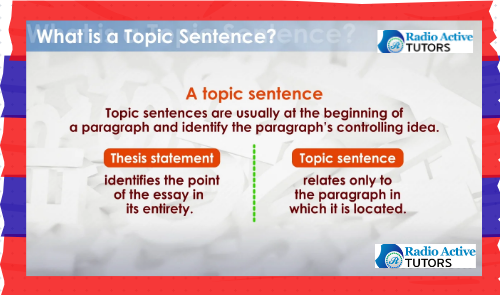
Each paragraph in your assignment should begin with a topic sentence that clearly states the subject of that paragraph. This practice helps you maintain focus within each section of your assignment and guides the reader through the logical progression of your ideas.
Regularly Review Your Work
Frequent self-assessment is vital to ensure that you remain on-topic. Periodically review what you've written to assess whether each paragraph and sentence contributes to the assignment's central theme. If you come across any content that appears off-topic, address it immediately.
Cite Sources Appropriately
When using external sources, ensure they are relevant to the topic and cite them correctly. Irrelevant or improperly cited sources can lead you off-topic. Here are some guidelines:
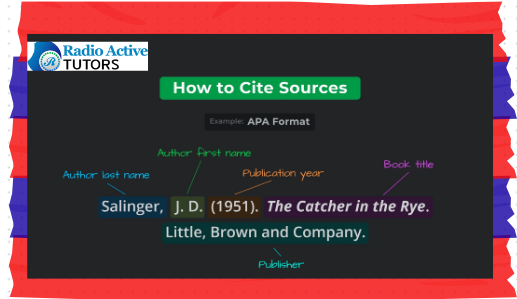
Relevance: When incorporating sources, consider whether the information directly supports your argument and contributes to the assignment's topic.
Accurate Citation: Follow the required citation style for your assignment, such as APA, MLA, or Chicago, and ensure that you cite sources accurately and consistently.
Seek Feedback
Receiving feedback from peers, professors, or colleagues is a valuable step in ensuring your work remains on-topic. Others can provide insights on the clarity and relevance of your writing to the assignment's topic. When seeking feedback, consider the following:
Clear Instructions: Provide your readers with clear instructions on what specific aspects of your work you'd like them to review, especially in terms of staying on-topic.
Open-Mindedness: Be open to constructive criticism and use feedback as an opportunity to refine your work.
Editing and Revising
The editing and revision process is essential for maintaining focus on the topic. During this phase, pay close attention to the relevance of each sentence and paragraph to the assignment's central theme.
Content Evaluation: As you edit and revise, evaluate the content to ensure it aligns with the topic. Remove or rephrase any sections that deviate from the main subject.
Clarity and Coherence: Check the logical flow of ideas and transitions to ensure that your work is coherent and directly addresses the topic.
Proofreading
Before submitting your assignment, thoroughly proofread it for grammatical and spelling errors. Typos and language mistakes can disrupt the flow of your work and detract from its professionalism.

Check for Clarity: While proofreading, focus on clarity and readability. Ensure that each sentence and paragraph contributes to the overall clarity of your writing and adherence to the topic.
Grammar and Style: Use grammar-checking tools to identify and correct language-related errors. Additionally, consult style guides for guidance on citations and formatting.
Conclusion
Efficiently sticking to an assignment's topic is a skill that can significantly enhance the quality and impact of your academic work. It requires careful planning, research, organization, and continuous self-assessment. By following these strategies and techniques, you can produce focused, relevant, and purpose
